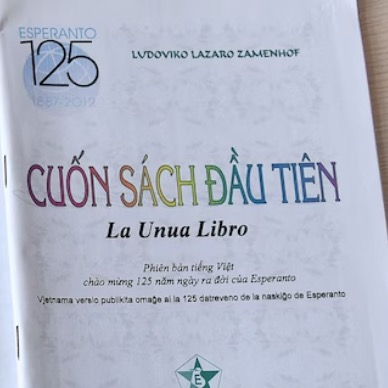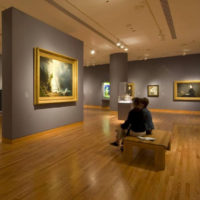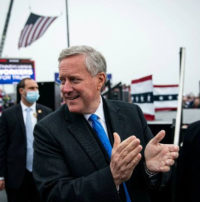AJ Four Ways:
Text Only (by date) | headlines only
- Why Dictionaries Still Matter
The book is formal and highly structured; it seems like something from another, vaguely bygone time. Still, dictionary editors have long paid close attention to how language is used and perused—in signs, in novels, in articles and pronouncements, and lately on the Web. – The Nation
- Our Culture Of Insurance Is Breaking Down
What emerged in tandem with the growth of capitalism was a system in which insurance and investment were bound together until it became integral to the economic system, seen as essential in protecting investments. This is why today you can’t get a mortgage without it. – Aeon
- The British Museum Employee Who Stole More Than 300 Prints
“Nigel Peverett, who worked at the museum’s Department of Prints and Drawings in the early 1970s, had remained a ‘frequent visitor’ until one day in April 1992, when he was caught.” He was prosecuted, hospitalized after a suicide attempt, and got a suspended sentence. Amazingly, he kept his employee pension. – The Independent (UK)
- Looking Back at NYC with Nostalgia and Dismay<a href="https://www.artsjournal.com/herman/2026/03/looking-back-at-nyc-with-nostalgia-and-dismay.html" title="Looking Back at NYC with Nostalgia and Dismay” rel=”nofollow”>
 In a newly recorded video, the noted writers Elisabeth Bronfen, Maaza Mengiste, and Christoph Keller look back at their experience of New York City with nostalgic affection — and, it must be said, with considerable dismay — from their vantage points in Switzerland and Germany.
In a newly recorded video, the noted writers Elisabeth Bronfen, Maaza Mengiste, and Christoph Keller look back at their experience of New York City with nostalgic affection — and, it must be said, with considerable dismay — from their vantage points in Switzerland and Germany. - Russia Returns To Exhibiting At The Venice Biennale
Russia will host a pavilion at this year’s Venice Biennale, the world’s most important art event — the latest sign of the country’s will to end its pariah status in global cultural and sporting life amid the war in Ukraine. – The New York Times
- How We Can Shape Our Dreams
Targeted Dream Incubation (TDI) uses external stimuli to connect with a dreamer and encourage them to focus on a particular topic or theme. – The Walrus
- Exiled Belarussian Theatre Brings Dissident Work To Venice Biennale
The exhibition, titled “Official. Unofficial. Belarus.,” is a group show presenting work by Belarusian artists who works challenge the long-standing authoritative regime in their native country. – Artnet
- How A Scholar Stumbled On Handwritten Notes By Galileo
Historian Ivan Malara spotted notes, annotations and a Bible verse handwritten by the young Galileo circa 1590 in an early printed copy of the Almagest, the second-century C.E. treatise on astronomy by Ptolemy which placed the Earth at the center of the universe. – Smithsonian Magazine
- Protests Over Announcement DePaul University Will Close Its Museum
The move has prompted outrage from faculty and staff, including an open letter penned by art history and philosophy faculty members and signed by more than 2,000 community members that criticized the school’s decision as “short-sighted, wrong-headed, and grounded in some deeply disappointing principles of prioritization.” – Hyperallergic
- Colm Tóibín: Of Course AI Is A Threat To Creative Writing
“This idea [that] no machine could ever replace my sensibility, which is so rich, varied, complex, and arising from experience and from history – that’s all rubbish. You can actually manufacture that.” – The Conversation
- Inside The Painstaking Restoration Of A Frank Lloyd Wright House
The Martin House’s resurfacing as a museum—with its insides restored, and its carriage house and conservatory rebuilt to original specifications—is nothing short of a “civic miracle.” – Artnet
- Chicago Art Institute Expansion Threatens Iconic Louis Sullivan Room
The old Chicago Stock Exchange Building trading room — Adler & Sullivan’s gilded age space rescued from demolition 54 years ago — could be uprooted from its longtime Art Institute of Chicago home under preliminary expansion plans being considered by the museum. – Chicago Sun-Times
- How Jonathan Groff Became A Now-Rare Thing: A Male Musical-Theater Superstar
Says director Michael Mayer, “He’s now established himself as someone who can open and sustain a show. And this at a time when star power is pretty much one of the only things that can guarantee viability for a musical.” – The New York Times
- 60 Years After Hollywood Abandoned It, VistaVision Is Back
While the format was quite popular in the 1950s (Vertigo and The Ten Commandments were filmed in it), the industry moved on in the 1960s and few VistaVision cameras have survived. Yet the films made in it in just the past few years include The Brutalist, Bugonia, Wuthering Heights, and One Battle After Another. – AP
- Dalí Museum In Florida Announces $65 Million Expansion
The 35,000-square-foot addition to the St. Petersburg institution, expected to begin construction this year and open in 2028, will increase exhibition space, add a dedicated learning center, and provide flexible environments for “experiential exhibitions that blend art and technology.” – Tampa Bay Times
- Is This Bust Of Jesus A Michelangelo? Independent Researcher Says Yes, Scholars Are Skeptical
Valentina Salerno, an actress and novelist with no formal training in art history, says she has reviewed numerous documents indicating that the sculpture, located in a Roman church, is the work of Michelangelo. She published her findings at a non-peer-reviewed website, though she says she’s willing to let scholars examine her research. – AP
- Trump’s “Freedom Truck” Mobile Exhibitions Are Now On The Road
“As the U.S. gears up for the 250th anniversary of the signing of the Declaration of Independence, President Donald Trump has dispatched six roving Freedom Truck exhibitions to crisscross the country. The first of 20 planned stops — mainly in the South, with forays to the Midwest, Arizona, and Utah — was last month in Nashville.” – Artnet
- Belarus Free Theatre To Appear At Venice Biennale
“The Belarus Free Theatre, an underground theater group in exile since 2020, announced Wednesday that it will stage the exhibition ‘Official. Unofficial. Belarus.’ as an official collateral event of the 61st Venice Biennale.” – ARTnews
- Where Stradivarius Found Just The Right Wood
“A study of the tree rings in Stradivarius violins, published in January in the journal Dendrochronologia, has revealed the most likely origin of some of the craftsman’s violins: wood from trees growing at high elevation in northern Italy in the same valley that hosted part of the 2026 Winter Olympic Games.” – The New York Times
- Like I said on February 27, 2024: War Is Coming. You ready?Everything that has led up to every “war to end all wars” is happening right now. What are you going to do?
- Good Morning
The Live Nation antitrust trial opened this week, with the government arguing the company uses its grip on venues to coerce artists into using its promotion services — a vertical squeeze that’s defined the live music business for years (The New York Times). Also on the question of who controls creative work: the Supreme Court declined to revisit AI copyright, leaving machine-made art without legal protection and the more pressing question — who profits when creativity gets automated — unresolved (Artnet). [see my take on this here (Diacritical)
Funding cuts keep finding their way into local institutions. Buffalo Toronto Public Media is reshuffling programming across two stations after losing $2.2 million in annual federal support (Inside Radio). The cancelled Pompidou Center Jersey City is now slated to become affordable housing — with Kushner Real Estate as the development partner (Gothamist).
In downtown Los Angeles, an artist installed a performance venue disguised as a utility box in the Arts District — police stopped her during installation, suspecting copper wire theft. Inside: a stage for experimental artists who’ve run out of more official options (Los Angeles Times).
All of our stories below.
- Meet The Last Of The Signpainters For The Markets Of Naples
“Announcing the clementines, artichokes and other goods on offer are cheerful, hand-painted signs in sun-bright lettering. Quotidian but also quintessential, the signs have become emblems of Naples’s vibrancy. … Pasquale De Stefano is, by consensus, the last living numeraio — or number painter — in Naples.” – The New York Times
- Universities As Practical Job Creators? We Ought To Do Better Than That!
An education spent in pursuit of material comfort and convenience is a recipe for unhappiness, an existence in thrall to the raw, hungry American mantra of success, “More! More!” – LA Review of Books
- Ballerinas Learn To Partner Each Other For Annabelle Lopez Ochoa’s New Piece
Gentleman Jack, premiering this weekend at England’s Northern Ballet in Leeds, is Lopez Ochoa’s adaptation of a 2019 television series about Anne Lister, a 19th-century landowner considered to be one of the first modern lesbians known to us. – The New York Times
- When Pop Culture Has a Half-Life of Six Months
Kids giggling at “six-seven” reveals the brutal math of digital culture: references expire faster than milk. What happens when shared cultural touchstones become as fleeting as TikTok trends? Generational gaps now measure in weeks, not decades. — Common Reader
- Ctrl+Alt+Delete the Gallery: Gamers Turn Shutter-Happy
Virtual landscapes are the new studio space as artists trade actual cameras for digital controllers. Who needs nature when you’ve got pixels? The art world’s latest existential crisis: if a screenshot falls in cyberspace, does it make a sound? — The Conversation
- Who Wrote This? The Age-Old Question Gets Circuitry
Before ChatGPT made everyone panic about robot poets, writers were already grappling with authenticity’s slippery slope. Ghostwriters, collaborators, editors—the literary world’s dirty secret is that pure authorship was always a romantic fiction. — LitHub
- Barbara Hannigan On The New Work She’s Premiering: “It’s Like Turning Your Soul Inside Out”
Composer Laura Bowler wrote the piece, which sets excerpts from Nobel laureate Han Kang’s The White Book, following her mother’s death in an accident after recovering from leukemia. Despite the daunting circumstances and Hannigan’s description, the soprano says, “I don’t think I’ve ever been more calm for a world premiere.” – The Guardian
- LA’s Art Gold Rush Ends, Actual Work Begins
The carpetbaggers have packed their Hermès bags and fled back east. What remains? The unglamorous business of building a real art scene—one gallery lease and artist studio at a time. — Artnet
- Paramount Debt Rating Lowered To “Junk” After Warner Deal
Fitch Ratings downgraded Paramount Skydance’s long-term issuer default rating from “BBB-” to “BB+,” putting it into speculative-grade investment territory (aka “junk”). – Variety
- Supreme Court to AI Art: Sorry, Humans Only
The high court declined to revisit whether algorithms can hold copyright, leaving AI creations in legal limbo. While tech bros rage and traditional artists breathe easier, the real question remains: who profits when creativity gets automated? — Artnet
- The Artist Who Copied Out The Complete “Moby-Dick” By Hand
Bethany Collins spent four months transcribing the 900-odd-page text. She finds many of Melville’s concerns relevant today: “following the lone madman who will take the whole ship down, … overconsumption, the pursuit of oil and an obsession with whiteness.” (Okay, the last one might be a stretch.) – T — The New York Times Magazine
- Why Is It So Hard To Make The Case For Universities?
The “constitutive” role of universities cannot merely be announced to like-minded audiences or extracted from sympathetic courts. – Chronicle of Higher Education
- The Role Of Arts And Culture In Turbulent Times
When the news and social media are flooded with opposing interpretations of events, outright lies, and about a zillion editorial style video shorts that offer about a zillion different opinions, art and culture can bring the reality and humanity of the headlines to light. – Ludwig Van
- Live Nation Anti-Trust Trial Begins
The government says Live Nation retains its grip on the music industry with strong-arm tactics like demanding that artists use its promotion services in order to perform in its amphitheaters. – The New York Times





